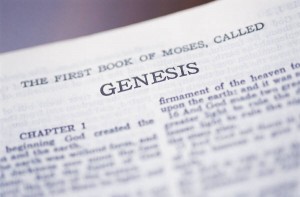 Back in January I began reading the Bible from beginning to end chronologically, meaning in the order the events occurred in history. Here is the link where I downloaded the plan I’m using.
Back in January I began reading the Bible from beginning to end chronologically, meaning in the order the events occurred in history. Here is the link where I downloaded the plan I’m using.
I’m almost to the finish line, having just finished Ephesians, and I’ve discovered something very surprising.
I saw it because, instead of reading the Bible as a number of disconnected passages by different authors from different times, for the first time I’ve been able to more clearly see the Bible, and particularly the Old Testament, as a story.
The story is difficult to see reading the Bible the way I’ve read it in times past, jumping around from passage to passage or even book to book. Imagine picking up a novel and reading a few pages in the middle, then the next day reading a few pages at the beginning or end. Would you get the story? Could you really understand the characters or the point of the story? It seems obvious to me now, but so many things are like that: much clearer in the rear view mirror.
And the thing I learned? It is this: The God of the Old Testament was very patient, loving and longsuffering, you know, much like the God of the New Testament.
I never saw this so clearly reading the Bible in a disjointed fashion, but it’s clear when reading the Bible chronologically as a narrative.
Israel, despite the many miracles they witnessed, turned their back on God and worshipped pagan idols. The Lord sent prophet after prophet encouraging them to repent and warning them of judgment if they didn’t. God waited, sometimes for hundreds of years before judging them, and even then, in the midst of warning them of imminent judgment, He always gave them hope for a future restoration. Instead of asking why God judged His covenant people, I found myself asking why He waited so long to do so!
The God of the Old Testament is the same yesterday, today and forever. GS
